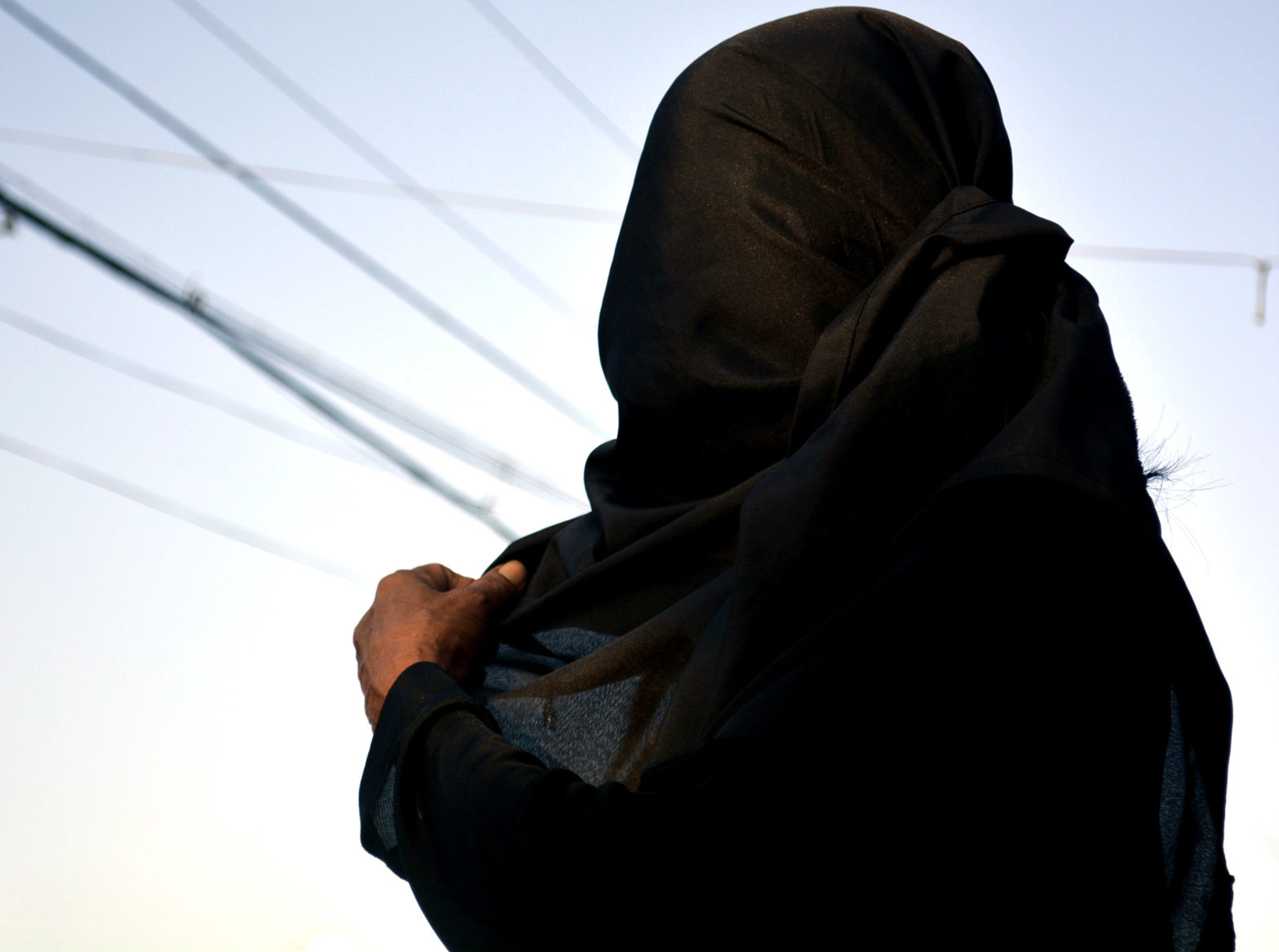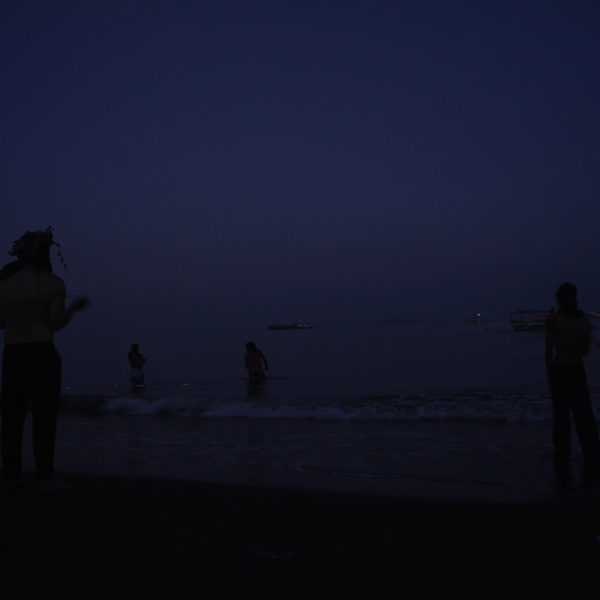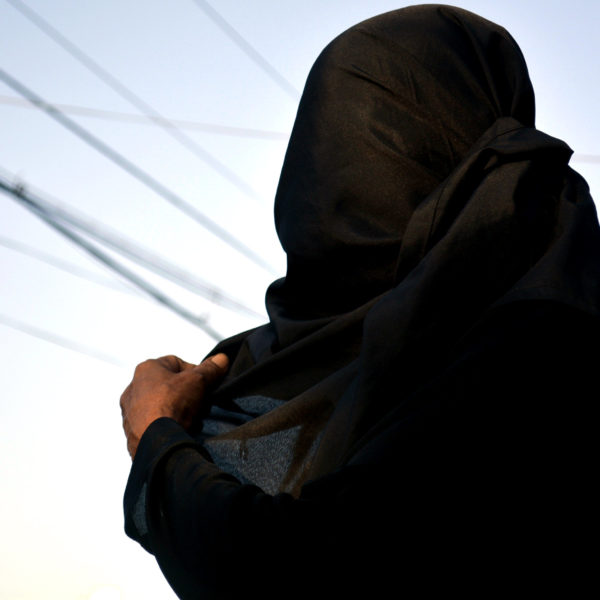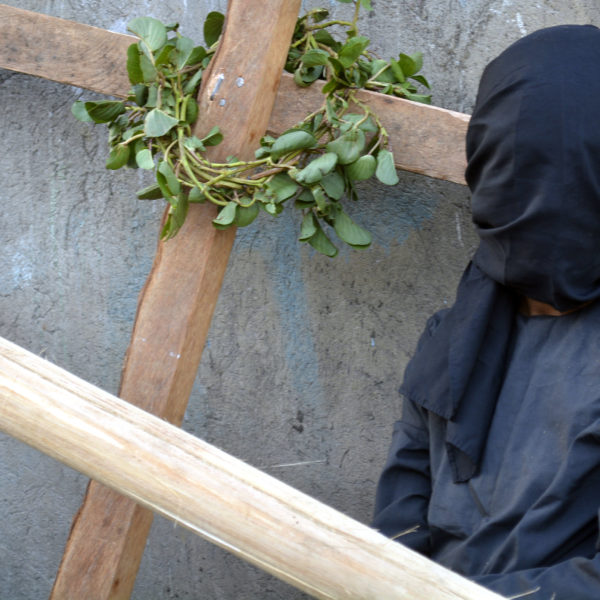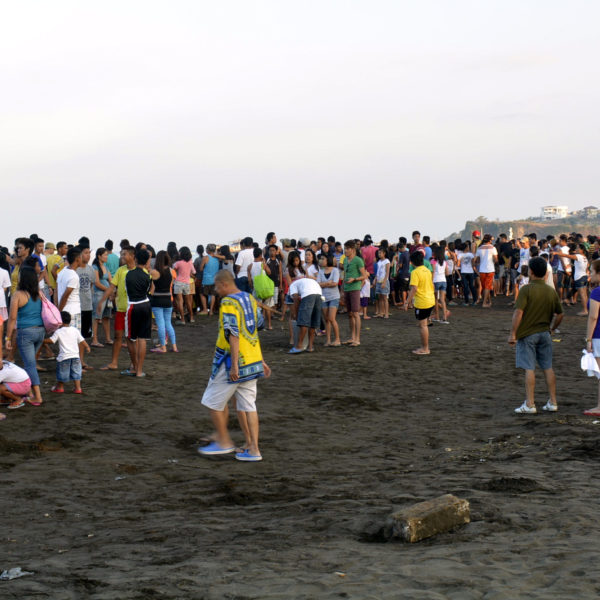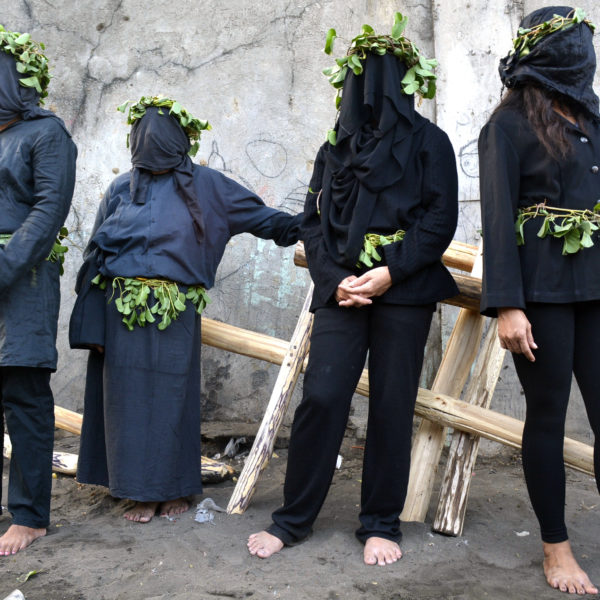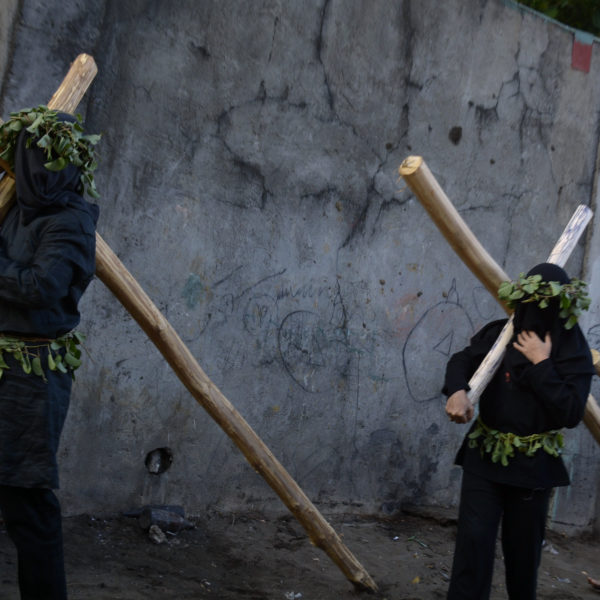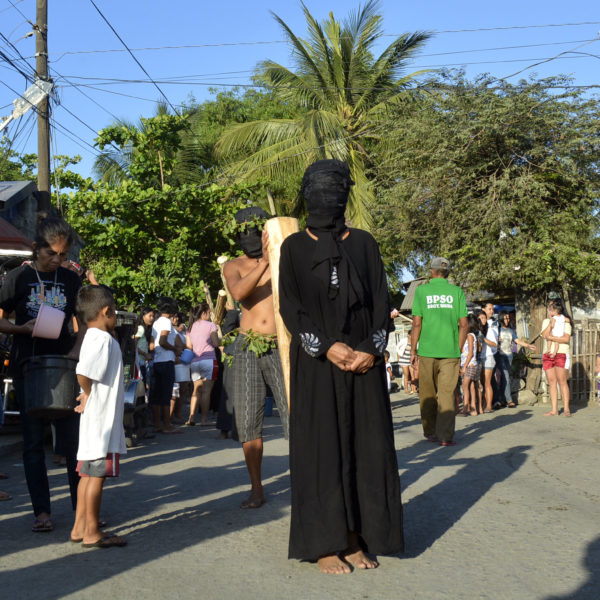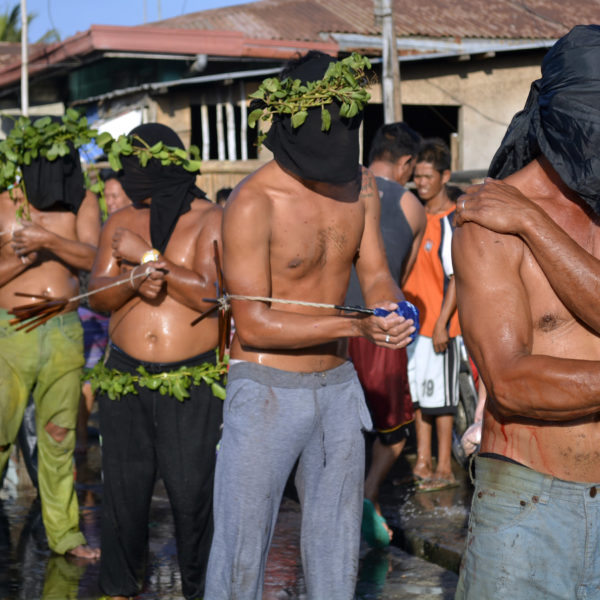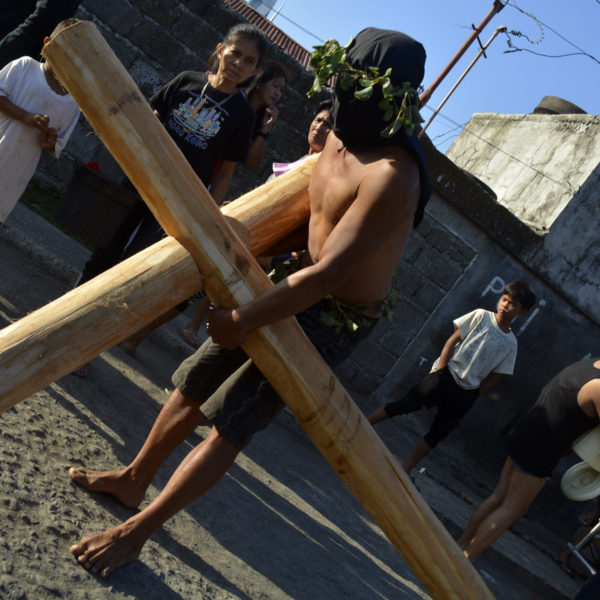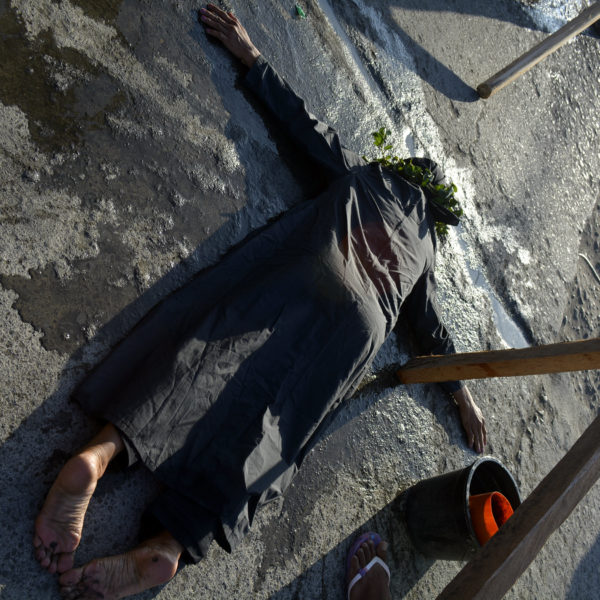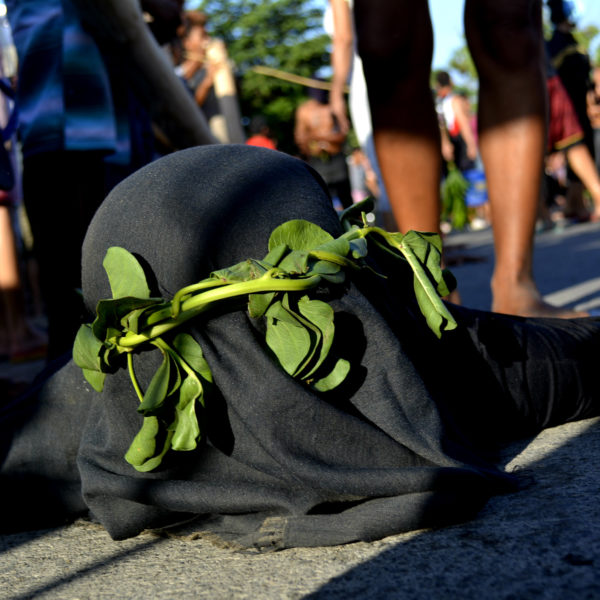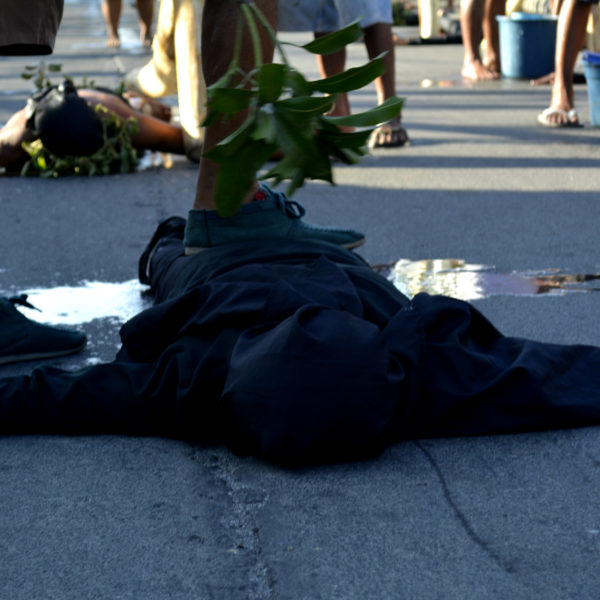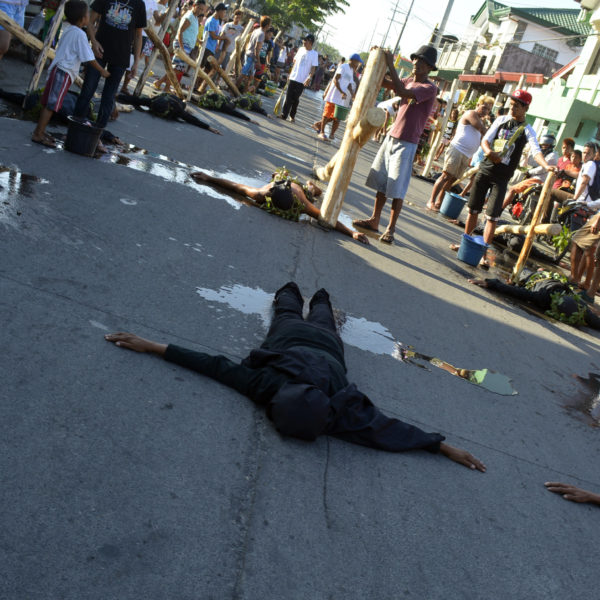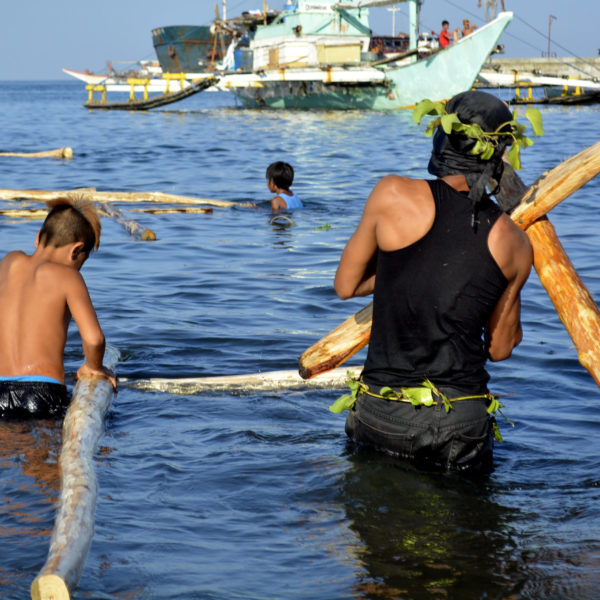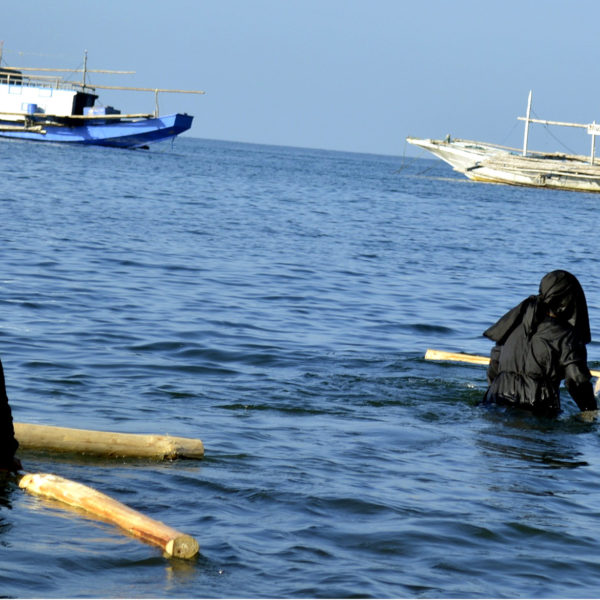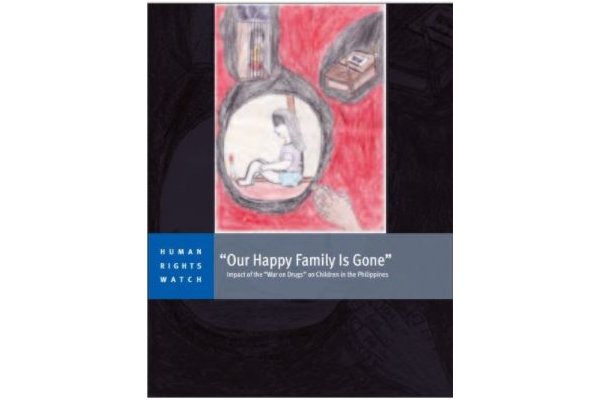Text and photos by JANE DASAL
NASUGBU, Batangas—At the break of dawn on Good Friday, Celilia Zafra donned a black dress and shrouded her face with a black cloth. Then she walked to a place called “putol na ilog” along the seashore of Wawa where devotees who do their “penitensya” or penitence gather every year.
Zafra is one of the millions of devotees in the country who fulfill their “panata” or vow during the Holy Week through acts of self-denial and self-discipline called penitensya. The panata usually accompanies a plea to God to grant a request.
In this town, the most common act of penitence among men is hitting the back with strips of wood attached to ropes or self-flagellation. Among women, it’s bearing a wooden cross.
The Church does not approve of the practice, but devotees like Zafra believe it to be a form of salvation, for themselves and their families.
For 13 years now, the 52-year-old has been carrying a cross during Holy Week.
“When my son was 7 months old and suffering from constant vomiting, I promised God I would sacrifice by carrying the cross if my child lived,” she said. Her child survived.
As early as 4 a.m. on Friday, Zafra and some 50 women, all in black dress and black veil, and 30 men, with their faces also covered with black cloth and their head crowned with leaves, lined up along the shore. Around 500 spectators had also gathered to witness the yearly display of devotion.
Soon, distinct sounds of wooden strips slapping upon flesh could be heard. The men had started beating their backs. They would occasionally stop to soak their ropes in saltwater before starting another painful round.
Zafra and the women, barefoot, then gathered by the crosses lying against a concrete wall. At 7 a.m., they began the procession, from the sea to the town proper.
“We walk very slowly to really feel our sacrifice. I can’t help but cry as I carry the cross,” she said.
Four men this year chose to carry of the cross instead of flagellating themselves. The women bore crosses that were equal to their weight while the men’s crosses were thrice the size of the women’s.
Several people carrying buckets would once in a while splash water on the ground and on the penitents’ feet to cool their soles.
The penitents stopped by houses where the “pasyon” was being sung, and fell prostrate on the ground. Each of them was hit on the back by a twig then lightly stepped upon.
This act symbolizes their prayer and reverence for Christ’s suffering. The pasyon is a lyric poetry of Christ’s suffering, death and resurrection.
“You cannot rise from your position until a person has stepped on your back. It is a sign of blessing for your sins,” said Perla Catapang, Zafra’s sister.
Catapang, 49, started her penitensiya six years ago when she implored God to cure daughter who had fluid in her lungs. Her cross, made from “taluto” trees, was built by her neighbors on Thursday.
No Church sanction
Although there is a need for sacrifice, Fr. Eriberto Cabrera, parish priest of the Archdiocesan Shrine of St. John the Baptist in Lian, Batangas, said the Catholic Church does not approve of acts of penitence that involve physical pain.
“People sometimes have different interpretations of the teachings of the Church on how to observe Holy Week. There is the danger that people may be purely emotional and become excessive in performing their personal sacrifices. This may lead to fanaticism and folk religiosity and we try to avoid that,” he said.
Cabrera pointed to other forms of sacrifices taught by the Church such as fasting and abstinence. “The Church primarily requires prayer, sacrifice and good acts to others. In these, the spirit of Lent becomes alive,” he said.
Cabrera, however, agrees that the act of prostration embodies humility before our Lord.
“Lying face down is the ultimate symbol of pleading for pity. It is the image of one who is in great need and pleads to God for help,” he said.
Catapang is aware of the Church disapproval of penitensya.
But she said: “The people want to do it. I want to do it because I am sacrificing for my family. If you are true to your vows and willing to sacrifice, you won’t feel any difficulty.”
She and her sister know this all too well. Together with the men and women of Nasugbu, they headed back to the sea at noon and washed themselves with saltwater.
“During Holy Week, the sea provides us with a cure. It washes away our sins and purifies us,” Catapang said. “I feel light after washing myself in the sea.”
As a last act, the devotees removed their black clothing, and gently let go of the wooden crosses to float away into the deep.
(The author is a University of the Philippines student writing for VERA Files as part of her internship.)
